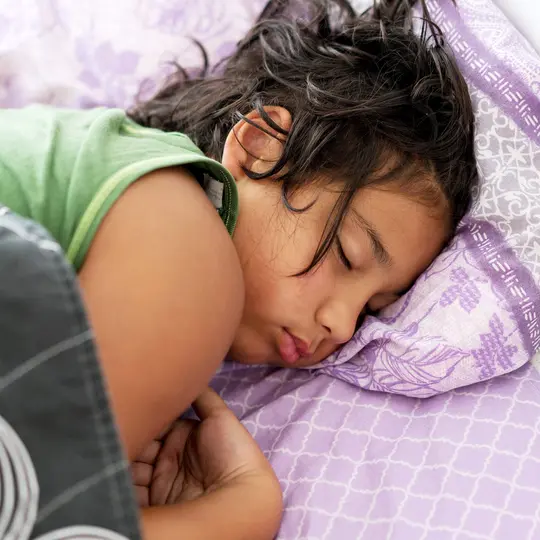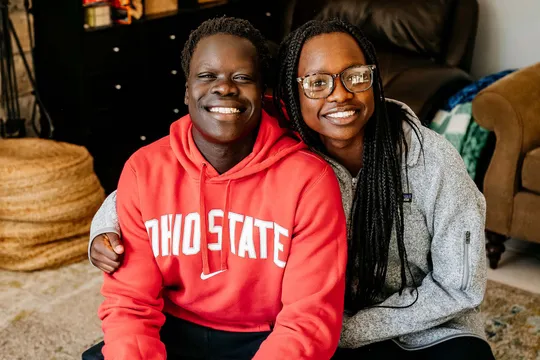1 of 5 / Toddler Milestones
View All
13 Months: Separation Anxiety
Separation anxiety when a child becomes fearful and nervous when away from home or separated from a loved one.
Sleep and Naps
Children and adolescents need at least 9 hours of sleep every night.
Biting
Many children between ages 1 and 3 go through a biting phase, which they eventually outgrow.
Tantrums
Temper tantrums can erupt months before your child's 2nd birthday, and they can be quite a spectacle.
2 of 5 / Child Development
View All
Your Child at 2
This is the time when your little one's character starts to take shape and they blossom into their own person.
Your Child at 3
At around age 3, children’s imaginations and language skills seem to get supercharged.
Your Child at 4
Your 3- to 4-year-old child will continue to grow and develop in many ways in the coming year.
Your Child at 5
Your child is growing up. Have you noticed that your 4- to 5-year-old is becoming more independent and self-confident?
3 of 5 / Behavior & Discipline
View All
Are There Benefits of Behavior Charts for Children?
See how a behavior chart is a positive reinforcement tool to track and encourage desired behavior in children.
How to Prevent Temper Tantrums
Anyone who has had a child, or been around one, has probably seen the dreaded temper tantrum.
What Is a Calm-Down Corner?
Learn all about the benefits of a calm-down corner and how to make your own.
Discipline for Teens
The teen years can bring some of the toughest discipline challenges parents have to face.
4 of 5 / Child Safety
View All
Keeping Your Baby or Toddler Safe
The following tips should help you keep your baby out of harm's way from birth through their toddler years.
What to Know About Trampoline Safety for Children
Trampolines are fun, but they can also be dangerous. Learn all about trampoline safety for children.
How to Keep Kids Safe on Bikes
Learn about ways to keep kids safe on bikes, including bike safety tips, common bike injuries, and more.
How to Talk to Your Kids About Social Media
Proven step-by-step instructions for how to talk to your kids about social media.
5 of 5 / Healthy Habits
View All
Suggested Reads about Health & Parenting
Study Confirms What Many Know: Babies Smell Good, Teens Stink
Researchers found that teens emitted two steroid compounds the little ones did not because they’d entered puberty and their sweat glands had begun working.
Fewer Teens Are Having Sex, Morning After Pill Use Increases
An estimated 9.4 million teens ages 15 to 19 years old said they have had sex, compared to 9.6 million who reported in 2002 that they were sexually experienced.
What Is Cryptophasia (Twin Language)?
Twin speak, aka cryptophasia, can seem like a language all its own. Learn what this phenomenon really means.
Verbal Abuse Should Be Considered Child Abuse, Report Says
Emotional abuse is now the most common type of child abuse experienced in the U.S., according to CDC data published this summer. About one-third of all U.S. adults reported experiencing emotional abuse during childhood, the CDC data show.
8 million+ Physician Ratings & Reviews
Find Doctors and Dentists Near You
You can also search by physician, practice, or hospital name
